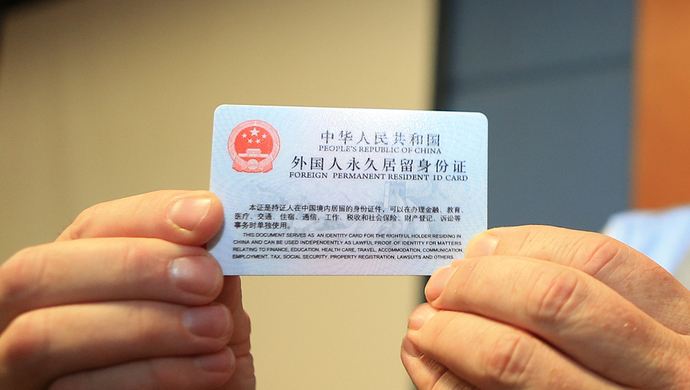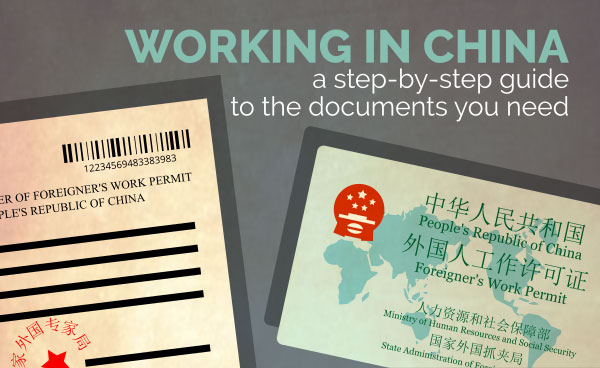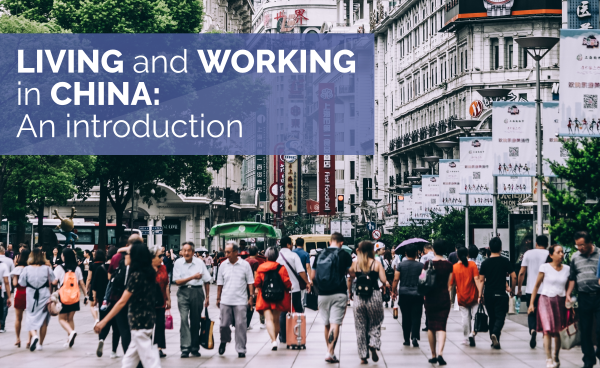
Taking a new job is a big decision. Especially if it also means moving to China. Everything from the language, culture, and food is completely different. The last thing you want is for everything you thought you knew about your new job to be completely different too!
Read on to find out what you should confirm with your employer before you sign a contract or step on a plane.
Who should read this
This article is for anyone taking a new job in China, whether you're new to the country or already here and changing employers.
Pre-arrival and contract
Before hopping on a plane and coming to China to start a new career and new life, make sure you fully discuss all of the following points with your employer. And make sure everything you agree upon is written into your contract! Also remember that although you'll want an English copy of the contract, the Chinese version always prevails.
Who should read this
This article is for anyone taking a new job in China, whether you're new to the country or already here and changing employers.
Pre-arrival and contract
Before hopping on a plane and coming to China to start a new career and new life, make sure you fully discuss all of the following points with your employer. And make sure everything you agree upon is written into your contract! Also remember that although you'll want an English copy of the contract, the Chinese version always prevails.
Check out this info we previously shared about Chinese employment contracts
Translating Foreign Contracts for China: No! No! No!
7 FAQs about Chinese employment contracts:
Health insurance
Companies with a large number of foreign workers often have excellent international health care plans with large insurers. Smaller companies or those with no international employees might not. Either way, do some research on insurance plans with large, reputable insurers so you have an idea of what kind of coverage is available at what price point and discuss with your employer what they can offer you.
Translating Foreign Contracts for China: No! No! No!
7 FAQs about Chinese employment contracts:
Health insurance
Companies with a large number of foreign workers often have excellent international health care plans with large insurers. Smaller companies or those with no international employees might not. Either way, do some research on insurance plans with large, reputable insurers so you have an idea of what kind of coverage is available at what price point and discuss with your employer what they can offer you.
Probably the easiest option is to consult with an insurance broker familiar with the market in China like chinaexpathealth.com (no affiliation with Foreign HR).
Another option to investigate: Chambers of Commerce also have group insurance plans members can access (the American and Canadian Chambers both offer such a service, for example).
Home flights
It's fairly common for your employer to offer a yearly or perhaps twice yearly flight home. This benefit is also tax deductible, as long as the flight is between your 'home', the city from which you departed to get to China, and the city of your workplace.
It's fairly common for your employer to offer a yearly or perhaps twice yearly flight home. This benefit is also tax deductible, as long as the flight is between your 'home', the city from which you departed to get to China, and the city of your workplace.
Vacation time
Make sure you understand how much vacation time you will receive, paid and unpaid leave, sick and bereavement leave, etc. Especially understand how Chinese vacations work.
Make sure you understand how much vacation time you will receive, paid and unpaid leave, sick and bereavement leave, etc. Especially understand how Chinese vacations work.
With national holidays, it's common for the government to juggle the work calendar to give you more days off in a row, but you have to make up for those days by working weekends. For example, you might get a four day long weekend only to find out that you have to work a Saturday or two to "make up" for the Thursday and Friday you had off.
Housing allowance
Like insurance and airfare, housing allowance varies widely across employers. Some offer it, some do not. And for those that do, what's on offer also varies.
Like insurance and airfare, housing allowance varies widely across employers. Some offer it, some do not. And for those that do, what's on offer also varies.
Some employers will cover the cost of a hotel for a few nights up to a few weeks while you get settled.
For housing, they might offer a fixed sum of money as rent subsidy, leaving it up to you to find a suitable living space. Other employers will offer a furnished apartment but usually not cover the cost of utilities. If you're not satisfied with the apartment, they likely won't give you an equivalent housing subsidy instead. Therefore you either take what they offer or pay the entire cost of your apartment out of pocket. And again, your employer might offer nothing at all.
Visa and work permit
Your employer is responsible for starting the online application, but you have to provide them with the necessary documents
Your employer is responsible for starting the online application, but you have to provide them with the necessary documents
The visa process is complicated and deserves its own article (in fact we wrote all about it here), but for now we're concerned with two questions:
To what extent is your employer going to assist you in the application process?
Who is paying all the associated fees (and they are numerous!)?
Who is paying all the associated fees (and they are numerous!)?
Application
A good employer will do much of the heavy lifting for the work permit application. The system is now all online and unified across the country. They should initiate the application and inform you of what documents they need from you (highest degree attained and criminal record check, both notarized and authenticated, medical check, etc).
A good employer will do much of the heavy lifting for the work permit application. The system is now all online and unified across the country. They should initiate the application and inform you of what documents they need from you (highest degree attained and criminal record check, both notarized and authenticated, medical check, etc).
Fees
Work permit application fee, fees to cover notarization and authentication of documents, courier fees for mailing your documents, medical fee, visa, work permit, and residence permit fee.
Who is paying for all of this? You or your employer? Check to see which expenses they will cover and which you have to cover.
Work permit application fee, fees to cover notarization and authentication of documents, courier fees for mailing your documents, medical fee, visa, work permit, and residence permit fee.
Who is paying for all of this? You or your employer? Check to see which expenses they will cover and which you have to cover.
Passport
Make sure your passport has plenty of time before it expires, ideally 12 months minimum. If not, get your passport renewed first and then apply for your visa.
Make sure your passport has plenty of time before it expires, ideally 12 months minimum. If not, get your passport renewed first and then apply for your visa.
A note: After working in China for a while you might find yourself having to renew your passport before the visa/residence permit inside it has expired. This will leave you with a Chinese visa/residence permit in your older, canceled passport and a new passport. It's annoying having to carry two passports everywhere, but not technically a problem. If you do have a valid Chinese visa or residence permit when you go to renew your passport, make sure that you get your old passport back and that the passport office doesn't damage your visa/residence permit while they are voiding your old passport.
Relocation costs
Some employers will offer to pay for a portion of your relocation costs, either within China when moving jobs, or when first coming to China (they might call this an arrival bonus). Your employer might also offer some compensation to ship items back home at the end of your contract. Or offer nothing. As always, if it's something you're interested in, ask.
Some employers will offer to pay for a portion of your relocation costs, either within China when moving jobs, or when first coming to China (they might call this an arrival bonus). Your employer might also offer some compensation to ship items back home at the end of your contract. Or offer nothing. As always, if it's something you're interested in, ask.
Tax
Another complicated issue. Make sure you understand your tax obligations in China - probably best to hire a reputable accountant.
Another complicated issue. Make sure you understand your tax obligations in China - probably best to hire a reputable accountant.
There are also brand new tax regulations in China which we wrote about here, but new information is still being released and we'll be posting about it in the coming weeks.
On the ground/arrival support
Will someone fluent in English be there to help you? Ideally, your new employer has someone on staff whose job it is to smooth your transition to China. They'll help you with things like booking your air travel to China, airport pickup, setting up a bank account and cellphone service, deal with your landlord, and accompany you to the hospital and translate if you fall ill. None of these services are guaranteed, however. You have to check with the employer to confirm what they're offering.
Will someone fluent in English be there to help you? Ideally, your new employer has someone on staff whose job it is to smooth your transition to China. They'll help you with things like booking your air travel to China, airport pickup, setting up a bank account and cellphone service, deal with your landlord, and accompany you to the hospital and translate if you fall ill. None of these services are guaranteed, however. You have to check with the employer to confirm what they're offering.
Spouse and dependents
If applicable, check with your company to see what benefits your spouse or children can enjoy. It's possible that your company will extend to them some of the same benefits you receive as an employee. For example, airfare, health insurance, and tuition for your children.
If applicable, check with your company to see what benefits your spouse or children can enjoy. It's possible that your company will extend to them some of the same benefits you receive as an employee. For example, airfare, health insurance, and tuition for your children.
Ask first
The common refrain here is: ask. Make sure everything is crystal clear, and above all, get anything your employer offers you in writing in your contract (in Chinese!)
The common refrain here is: ask. Make sure everything is crystal clear, and above all, get anything your employer offers you in writing in your contract (in Chinese!)
Good luck with the new job!










 京公网安备 11011202001511号
京公网安备 11011202001511号